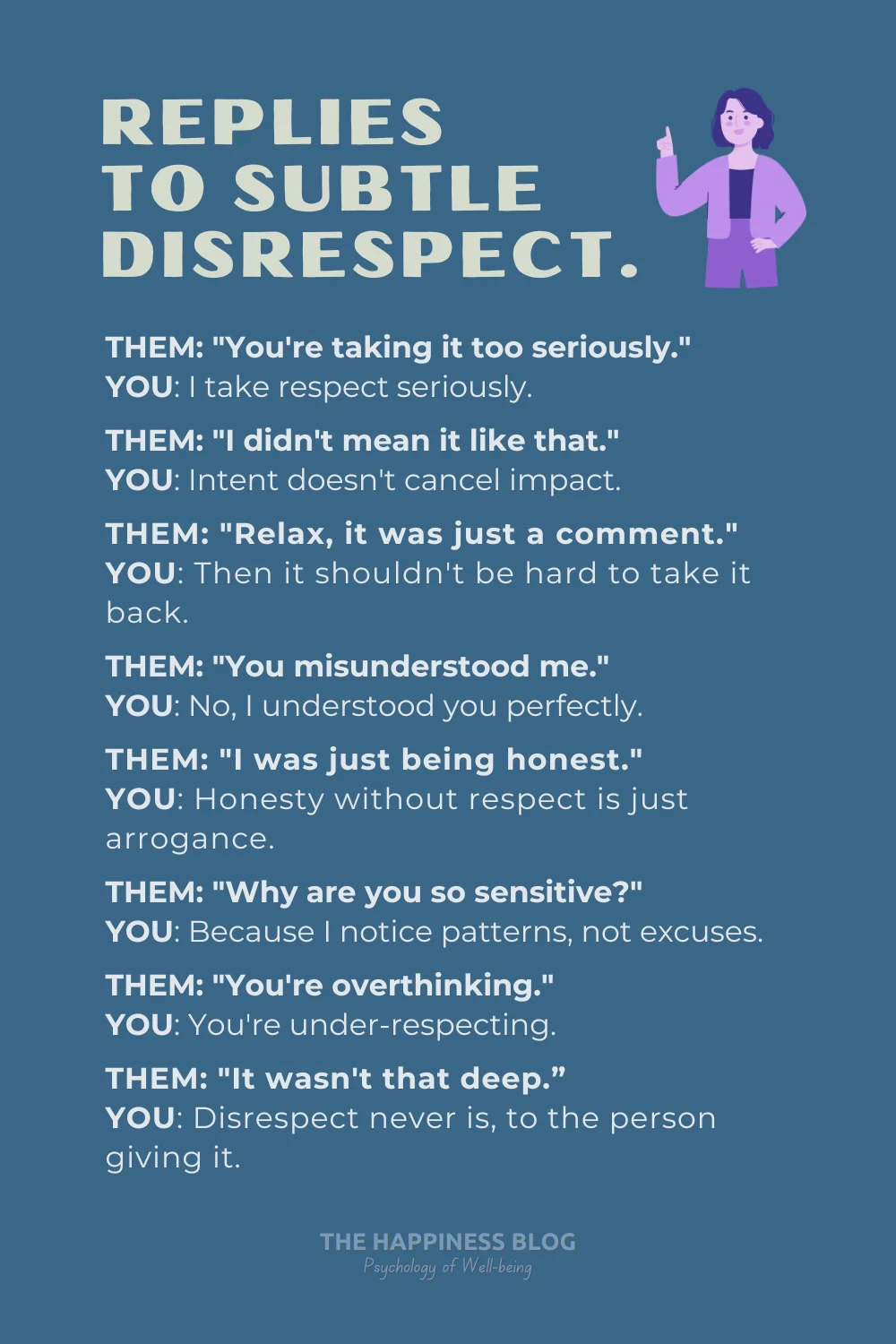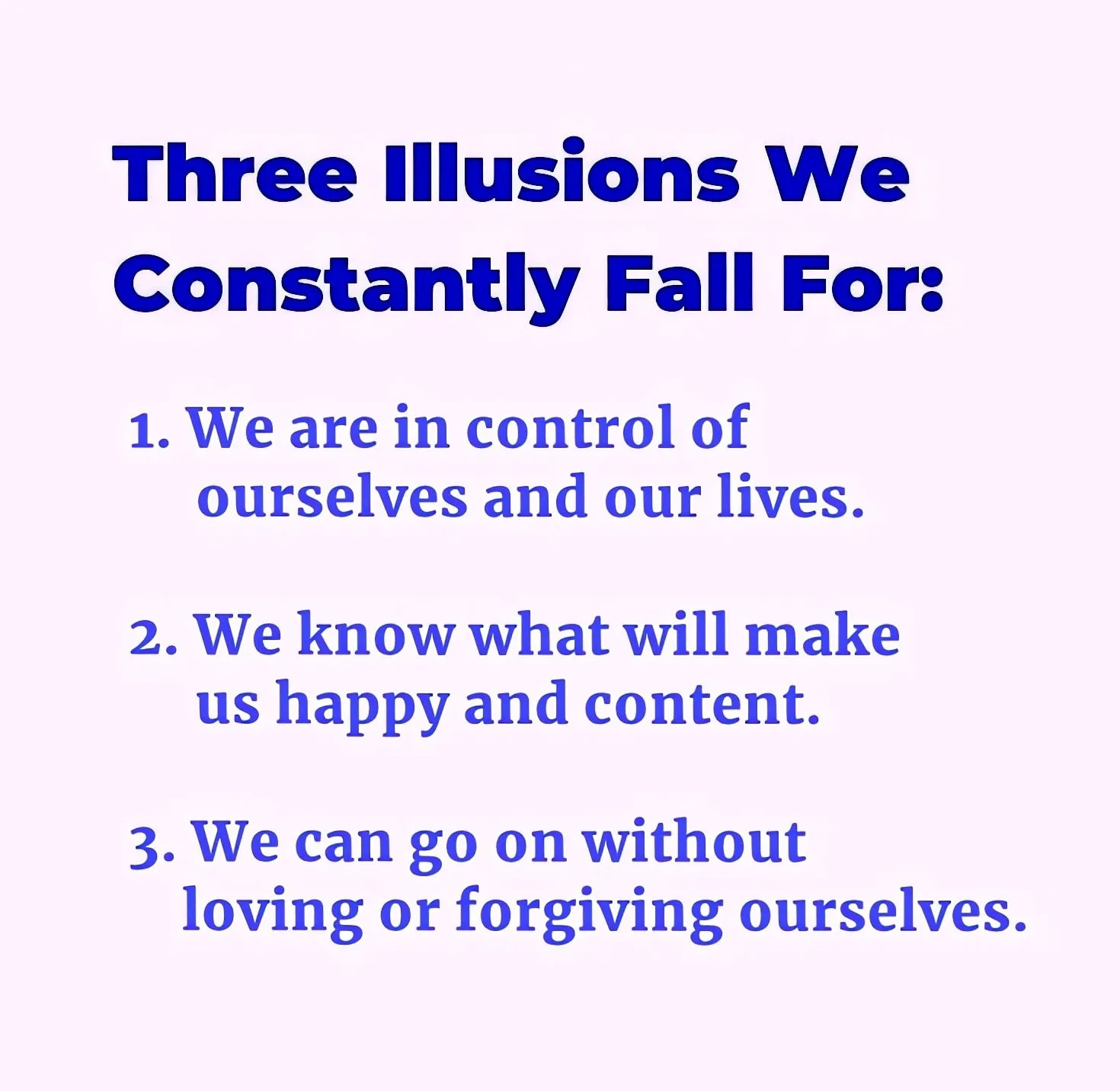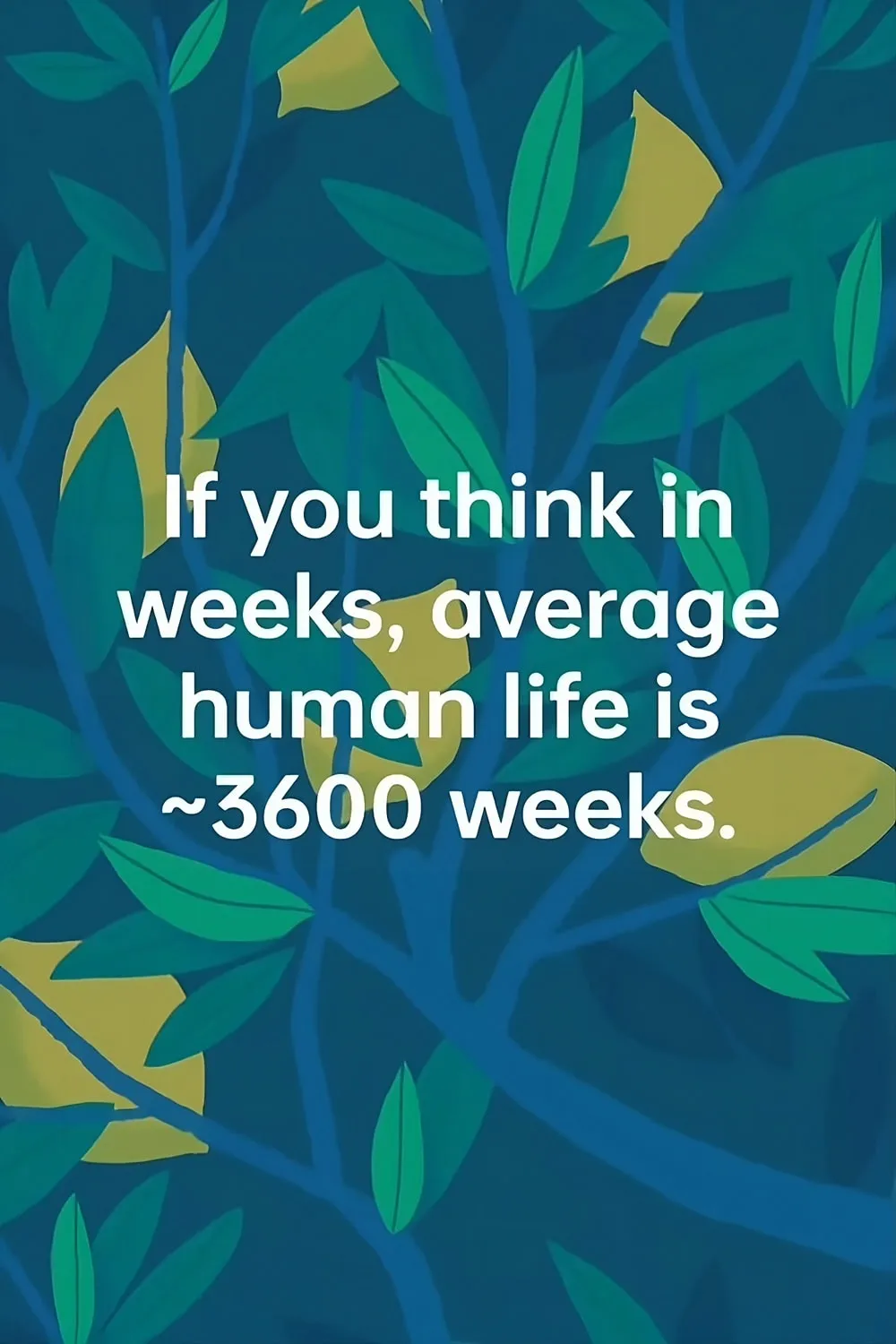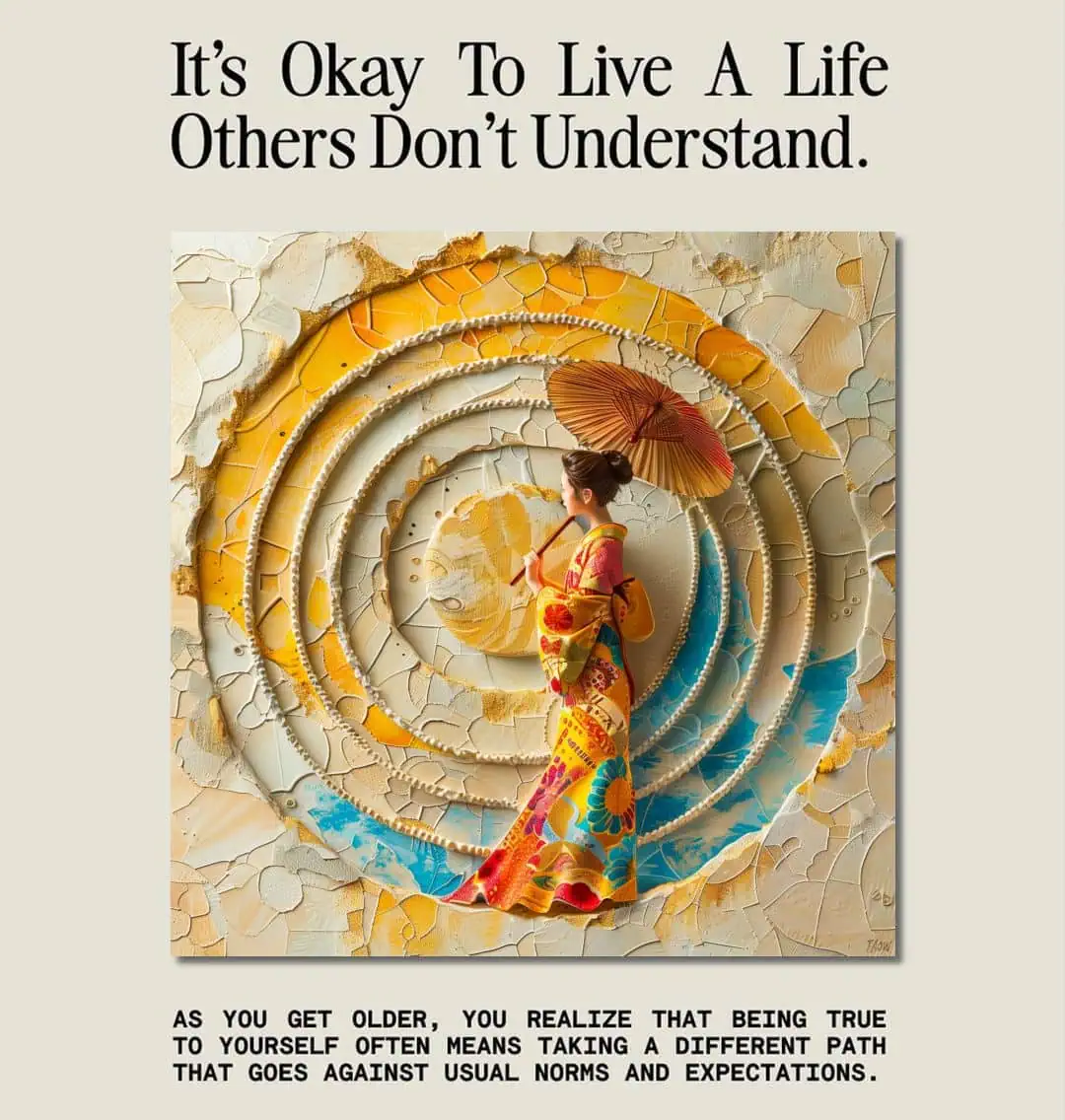Today's Thursday • 7 mins read
— By Dr. Sandip Roy.
We get roughly 3600 weeks to live a full life.
How many have you already lived? How many are left?
A meaningful and peaceful life doesn’t happen by accident. While written rules shape societies, it’s often the unwritten rules that give life its sense of order and grace.
They are the invisible agreements that guide how we treat ourselves and others.
These 10 unwritten rules will make your life more peaceful and meaningful.
1. Pay Back Borrowed Money Before You’re Asked
Pay back borrowed money before expected, even if you haven’t been asked.
Nothing strains a relationship like delayed repayment. Borrowing money is a trust agreement. Returning it early strengthens that trust.
- Set a repayment schedule.
- Honor it even if it requires sacrifice.
- If delays happen, tell them why and when you can pay them back.
- Do not lie. Do not avoid their communication. Show you are committed to paying back.
Even if the amount is small, paying back on time builds your social trust and social respect.

2. Don’t Let Anyone Disrespect You A Third Time.
Disrespect is the first crack in the structure of any relationship.
Once, you may forgive it as a mistake and tell them of your boundaries. Twice, remind them they crossed your boundaries. Boundaries define what behaviors you will and will not tolerate from others.
But if they do it a third time, then it’s a pattern; that’s where you draw the line.

Ground rule:
- First time: Assume it’s a mistake, forgive, and declare your boundaries.
- Second time: Address it directly: Remind them they crossed your boundaries.
- Third time: Do what you said you’d do if they repeat their disrespectful act. Walk away.
Each time you allow disrespect after setting a boundary, you teach them it’s acceptable. From there, they’ll keep pushing, and your self-worth pays the price.
If someone repeatedly crosses your boundaries, leave; don’t stop to fix them.
Let’s repeat that: Don’t let anyone disrespect you thrice.
3. Your Thoughts Aren’t Always the Truth.
Don’t believe everything you think.
Your mind can be powerful and persuasive, but also biased and fear-driven. Your thoughts are not always telling you the truth.
You might think…
- “I’m not good enough.”
- “People don’t like me.”
- “Nothing will work out.”
But feelings aren’t facts. Thoughts are interpretations of the world around you. And interpretations can be wrong.
Try saying:
“This thought isn’t a truth. It’s a story my mind is telling me.”
Challenge unhelpful thoughts instead of obeying them. Ask:
- Is there evidence?
- Is this always true?
- How would I see this if I were calmer?
That shift can change everything.

4. Don’t Wait for Happiness. Take a Step Toward It.
Happiness doesn’t show up when life gets easier. Success doesn’t arrive when you “feel ready.”
You have to walk toward them, even if the steps are small; happiness will follow.
Waiting for motivation or perfect timing keeps you stuck. Progress begins when you start, not when you’re fully prepared.
Example:
- Want to get fit? Walk for five minutes today.
- Want to be a writer? Write one sentence a day.
- Want to change careers? Research one program tonight.
Start small. Keep going. Let consistency build confidence.
Remember:
Don’t wait for the path. Lay a brick and call it the beginning.

5. Show Appreciation for Goodness. Don’t Assume People Know.
Gratitude is glue. It bonds people, and it gives an emotional boost to both giver and receiver.
Say “Thank you” often. And when you do:
- Be specific: Tell them why you’re grateful. “Thanks for staying late. You made that easier for me.”
- Be quick: Don’t delay appreciation. Express it as soon as possible after the person helps you.
- Be genuine: People can feel when gratitude is real and when it’s fake.
Appreciation turns good people into loyal allies. And it turns moments into memories.

6. Be Fully Present With The People You’re With.
Attention is today’s rarest gift. When you give someone your undivided presence, you tell them: “You matter.”
So when you’re with someone:
- Make eye contact.
- Put the phone away.
- Ask sincere questions.
- Listen more than you speak.
Being present has one more layer: respect for privacy.
Let others have their space, thoughts, and moments unseen.
Presence says, “I am here with you.”
Respect says, “I trust you to be who you are.”

7. Love Yourself Like Your Life Depends On It.
We’re often taught that loving others is noble, but loving ourselves is selfish or vain. Yet self-love is the foundation for all forms of peace and meaning.
Self-love is about respecting yourself enough to stop abandoning your own needs. It rests on three pillars:
- Attention: Noticing and listening to your needs
- Acceptance: Making peace with your flaws
- Care: Doing what supports your well-being
Without self-love, you’ll struggle to build healthy relationships or pursue your goals with confidence. The opposite of self-love isn’t humility. It’s self-neglect.
Start here:
- Practice self-compassion regularly.
- Set and keep relationship boundaries.
- Celebrate your progress, however small.
- Stop having relationships with toxic people.
8. Treat Everyone Fairly, Not Just Those Who Can Benefit You
Treat everyone with fairness, regardless of their status or background.
Character isn’t how you treat people who can help you. It’s how you treat people who can’t.
Fairness, kindness, and respect are quiet signals of emotional maturity. When you show them to everyone, you help build a world where dignity is equally shared.
You don’t have to like everyone. But you can treat everyone humanely, from a cleaner to a CEO to someone you will never meet again.
Lift the room you’re in, not just the ones you want to impress.

9. No Relationship Is Promised Forever
No relationship is promised forever, however harsh that may sound.
Even the most beautiful relationship carries the possibility of change or ending.
Life can be unpredictable. People change. Situations turn. Values evolve. Some endings are too sad, but they are also natural.
This rule frees you to:
- Love fully without holding back.
- Release relationships that harm you.
- Accept life’s flow instead of fighting it.
Be present, kind, and grateful in every relationship. Talk to your loved ones while you still have time. Tell them about your dreams, needs, and emotions, and listen to theirs.
Let go with grace. Welcome new love with openness.

10. Be A Guardian of Small Courtesies
Some unwritten rules are tiny, but they shape culture in big ways.
Try living by these simple practices:
- Keep your word
- Respect sleep, space, silence
- Apologize when you’re wrong
- Don’t ask questions you wouldn’t answer
- Don’t snoop through someone’s phone or privacy
These things might not appear in any formal code, but they build trust, ease, and goodwill around you, which is what peace looks like in motion.
Final Words
Unwritten rules are the quiet architecture of society. They’re how we show respect, earn trust, and honor each other’s humanity.
Try living by these 10 principles for a month. See how your relationships change. Watch your inner peace rise.
And remember that other people are not obliged to live by your values. But you’re free to live by the best version of yourself.
💙 Also read: 7 Things To Let Go Of For More Peace In Life
√ If this post helped you, please share it with someone who matters to you.
» You deserve happiness! Choosing therapy could be your best decision.
...
• Disclosure: Buying via our links earns us a small commission.
